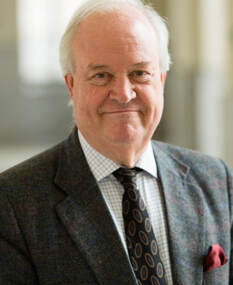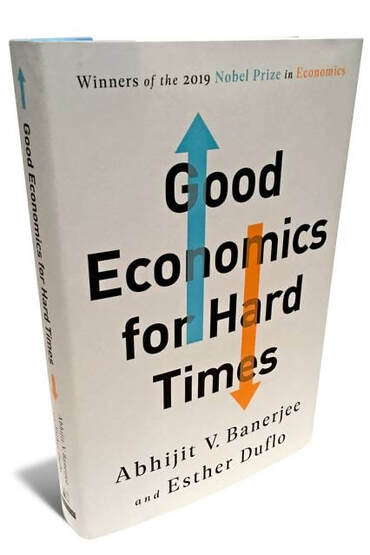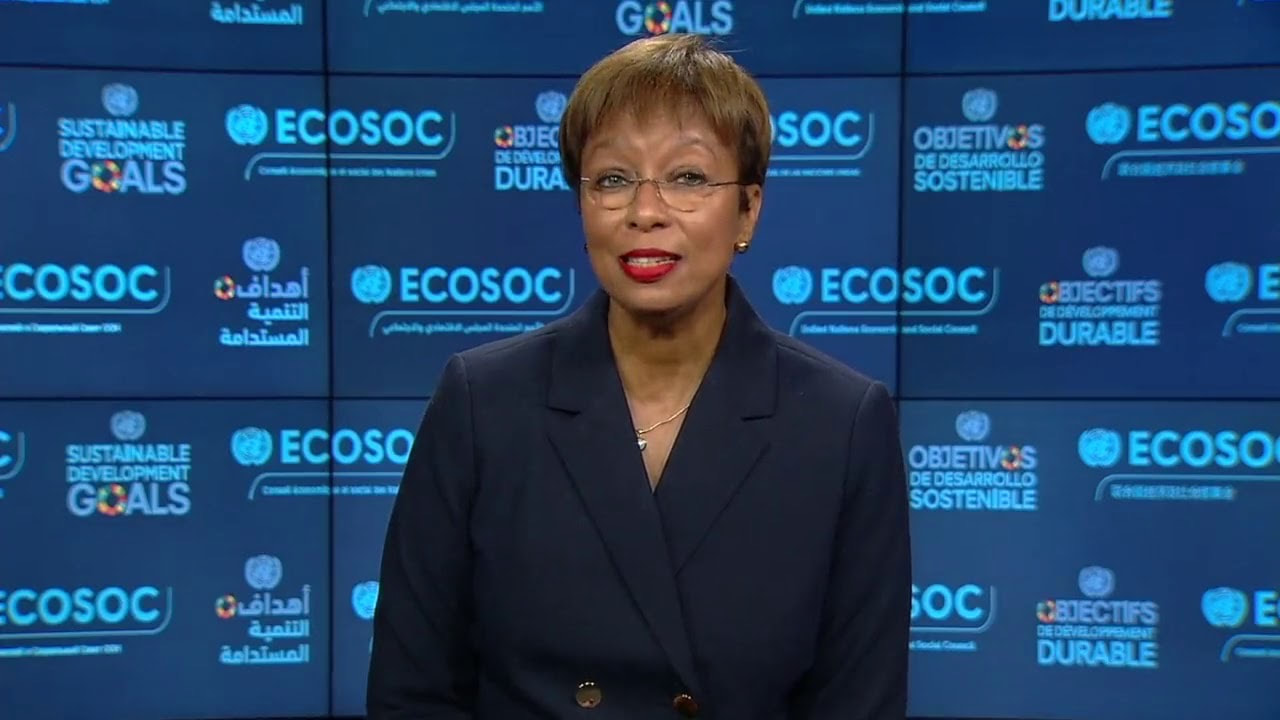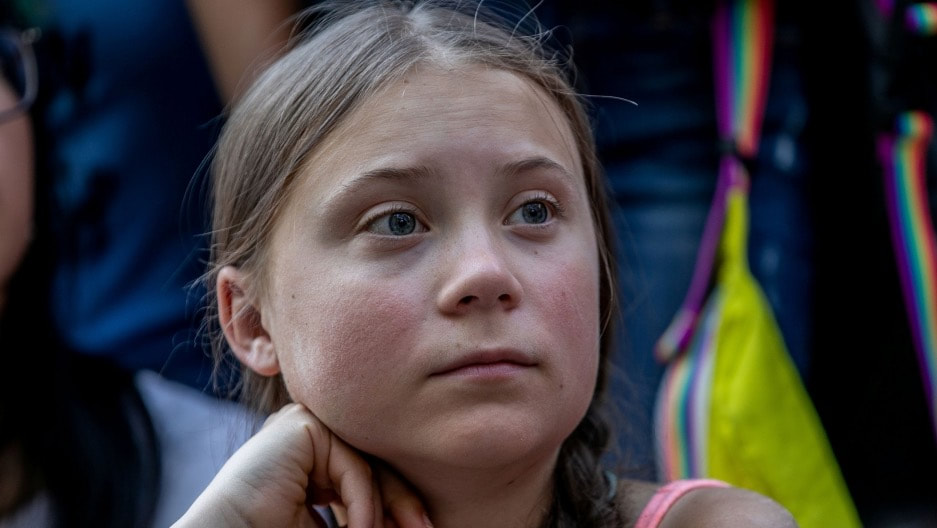 This week's post is by Jorge Heine, research professor at the Pardee School of Global Studies at Boston University, a Wilson Center global fellow and a non-resident senior research fellow at the Center for China and Globalization in Beijing. Jorge is former Chile Ambassador to China This blog appeared in Global Times January 16 , 2020 The beginning of a new decade has a happy ring to it - a feeling of turning a page, of starting anew, of a fresh impetus. Yet, this year of the rat according to the Chinese calendar looks ominous, one in which the world will face many daunting challenges. The gathering storm between the US and Iran brought to the fore by the killing of General Qasem Soleimani in Baghdad and the downing of a Ukrainian passenger plane over Iran with which the year began is, of course, the most obvious signal of simmering conflicts around the world. How likely is it they will explode, drawing in many other players? Which are the flashpoints to watch? Is it true, as many say, that things will get worse before they get better? Here is my take on some key issues and how they will shape our increasingly endangered planet. Global warming: Climate change is perhaps the defining issue of our time. We only have a small window of opportunity to do the needful to avoid reaching a 2-centigrade increase in temperatures that would be catastrophic. Yet, no substantial progress is taking place in reducing global carbon emissions. COP25, the big conference held on the subject in Madrid in December, was a fiasco. Some would say that the fires that engulf much of New South Wales and other states in Australia, burning eight million hectares and killing a billion animals, provide a frightening, hell-like preview of what we shall soon see elsewhere as a result of rising temperatures, widespread droughts and climate-change denialist governments. The second cold war: Far from de-escalating, tensions between the United States and China, if anything, increased in 2019, and show few signs of abating in the new year. Yes, the first phase of a truce in the trade war between both countries is in the offing, and some details about what the second phase would entail are emerging. But tensions on the technology front have not diminished, and many seem happy to ratchet up, rather than down, the us-versus-them rhetoric that feeds on itself. In a US election year, this is unlikely to change. The relaunch of the Committee on the Present Danger, once focused on the Soviet Union, and now on China, is not encouraging. An unraveling WTO: Much of the growth and prosperity we have seen in the course of the past three decades, which has led, among other things, to the achieving of the UN Millennium Development Goals, including the drastic, worldwide reduction of poverty, has been driven by high global trade volumes. This slowed down after the 2008-09 financial crisis. Yet, the entity responsible for this open trading system is in crisis. The Doha Round negotiations have stalled since 2008, thus rendering moot one of the WTO's main functions. Now, since December 10, 2019, its other function, that of resolving trade disputes, is also inoperative. Its Appellate Body, normally made up of seven members, has now been left with only one, as the US has blocked all new appointments, leaving it with no working quorum. A go-for-it Brexit: Until the recent UK elections, there was still hope Brexit might be stalled in one way or another, and thus avoid what some consider to be the first step toward the break-up of Europe. With an overwhelming majority won by the Tories in these elections, and Prime Minister Boris Johnson at the helm, that hope is now gone. For the next few years, both Britain and the EU will be consumed by the protracted negotiations to make that happen, precluding the EU from playing a forward role in global affairs, at a time when it will be most needed. A proxy-war riven Middle East: The murder of journalist Jamal Khashoggi by the Saudi government, within the confines of its own consulate in Istanbul in 2018, indicated the degree to which all bets are off in a region that jumps from crisis to crisis. The Sunni-Shia conflict within the Muslim world, reflecting the geopolitical and ideological rivalry between Iran and Saudi Arabia, is in full swing. Syria and Iraq stand firmly with Iran, Sunni-majority countries like Egypt do so with the Saudis, and those like Lebanon are caught in the middle. The full break-up of the US-Iran nuclear deal, and Tehran's signals that it now feels free to join the nuclear arms race, add to an already volatile situation. A case can be made that all these issues are long-in-the-making processes that took many years to come to the fore and will not necessarily reach a boiling point in 2020. Touché. Yet, my point is a different one. It is the combination of such serious global governance issues with trade and technological tensions at a time of increasing disregard for once established norms of international behavior that creates such an international tinderbox. And this is not by happenstance. As Italian Marxist philosopher Antonio Gramsci put it, "a crisis consists precisely in the fact that the old is dying and the new cannot be born. In this interregnum a great variety of morbid symptoms appear." As the unipolar world that emerged at the end of the Cold War gives way to a new one, whose hallmarks are globalization and multipolarity, there is resistance and reaction against the newly emerging order. In many ways, the populist movements in the developed world are a reaction against the decline of the West and the rise of the Rest. Their disregard for the established rules of international behavior is part of the appeal to their electoral base. None of this makes for smooth sailing. But it does put a special premium on the leadership of the rising powers of the Global South to keep the ship of global governance on an even keel as we enter an especially fraught year. Jorge Heine
4 Comments
 This week’s blog is being presented by Prof Anthony Bryan, Senior Associate with the Center for Strategic and International Studies (CSIS), Washington, DC and former Director of the Institute of International Relations, University of the West Indies, St Augustine. He advises that while Guyana celebrated “First Oil” on 20 December 2019, the focus of this blog is on "first lift" scheduled by March 2020. He explains that “First lift is the technical term referring to the method that involves the use of artificial means to increase the flow of crude oil from a production well. That is when an abundant amount of crude is actually produced to meet the objectives of barrels daily”. The Commonwealth has an estimated 232 billion barrels of oil reserves or about 17% of the world’s total. Reserves from 17 member countries contribute to this stock. Canada and Nigeria are the leaders. Guyana is about to join the team in a big way. By the end of November 2019, the international oil companies (IOCs) Exxon-Mobil and Tullow Oil had made a record of 16 oil discoveries in the Stabroek Block of the deep water Guyana -Suriname Basin and ExxonMobil was preparing to begin oil production at the Liza Phase 1 well site. Production from that field should reach 120,000 barrels a day (b/d) in 2020. Guyana’s first lift is expected by March 2020. By 2025 production could be 750,000 b/d and by the end of the decade, more than one million b/d of oil equivalent. Under the current Production Sharing Agreement (PSA) the IOCs have a 75% cost recovery with the remaining 25% profit oil equally split between the licensees and Guyana. The current royalty rate is 2%. The impact on the Guyanese economy can be convulsive. In 2020 it will grow by 86%, and the per capita income could more than double to US$10,000. Rystad Energy estimates that national revenue will amount to more than US$117 billion over the lifetime of the projects. With the windfall, and a population of less than 800,000 inhabitants, Guyana could become one of the world’s richest nations per capita. Obviously it will not happen overnight. The IOCs have to recover their investment and projected peak production is still some years away. The geology is right. But a national sense of euphoria is high and caution may be in short supply. There are some harsh realities. Guyana is new to the game of oil and gas production. Four years ago it had no known oil reserves. Now it must race to provide the necessary legislation, institutional structures and management for first oil. Crafting oil legislation is a new experience for the Guyanese. As a frontier oil province, the country is vulnerable to the many ‘above ground’ pitfalls that could accompany the boom. The explosion of money might be difficult to absorb and to manage. Inflation can rise stifling the development of other industries. The immediate danger is that any government will leverage now on future earnings taking on more debt. The looming pitfall is the ‘resource curse’ or the ‘paradox of plenty’ where the destabilisation of traditional economic sectors occurs as the country becomes overly dependent on exports of a single commodity. Some cash-poor but resource-rich countries tend to be less developed precisely because of their resource wealth. The government must ensure that the country has all the provisions in place to earn its fair share of the windfall. The population can become frustrated at the lack of any immediate tangible benefits that they may have expected from the oil revenues. Managing public expectations is critical. Regulations must be developed to protect against environmental degradation including oil spills. And finally there is the elephant in the room – namely leadership corruption – which is rampant in some emerging oil states. Maybe Guyana does not have such levels of corruption; but oversight institutions are crucial in order to combat this curse. There are positive signs. In 2017, Guyana joined the Extractive Industries Transparency Initiative (EITI) that will monitor its resource governance. A sovereign wealth fund (SWF) has been established to invest and spend oil revenues in a manner that transcends political cycles and generations. Parliament has passed the Natural Resource Fund (NRF) that will strengthen revenue management. The government has also put forward a Green State Development Strategy: Vision 2040 (GSDS) that is the roadmap for an economy defined by sustainable, efficient, low-carbon and resilient development for successive generations. The hydrocarbon resource revenues are expected to be the catalyst for growth and funding of the GSDS. The key to Guyana’s success is the effective management of the oil and gas sector. Unfortunately, the political impasse in 2019 has delayed the implementation of some institutional arrangements for the management of the sector. The best laid plans are useless unless they are implemented. Since oil is a depleting asset, the primary question is how to convert the income flows into physical, human and financial capital that can benefit generations. To that end, should Guyana seek to keep the oil in the ground for longer periods or to extract it rapidly and diversify into a more sustainable economy in case the value of the resource diminishes? The oil price fluctuates constantly. Drilling is going on worldwide. The planet is awash with oil. Hydrocarbons will be with us for some decades to come, but they will be replaced eventually by forms of renewable energy. Guyana will prosper if the massive revenue quickly transforms the economy and the quality of life for its citizens. I am cautiously optimistic. Anthony Bryan 1/16/2020 Economics is too important to be left to Economists: The haunting view of two 2019 Nobel LaureatesRead Now The Nobel Prize in Economics 2019 was awarded in November to Abhijit Banerjee and Esther Duflo, both professors at the Massachusetts Institute of Technology (MIT) jointly with Michael Kremer, professor at Harvard University. This trio has often worked together, and their joint research has been acclaimed to considerably improve our ability to fight global poverty. According to the citation “in just two decades their new experiment-based approach has transformed development economics which is now a flourishing field of research.” The book by Banerjee and Duflo, Good Economics in Bad Times is the focus of this blog. The authors are the sixth married couple to win the prize, with Dufflo being the youngest. Unlike previous winners, mostly older white males whose grand theories are built upon mathematics of dizzying complexities, they have made a name for themselves by studying the circumstances of the world’s poorest people. This Book is absorbing. It reads like a novel. It presents complex issues in simple concepts. It is, indeed, Good Economics. ____________________________________________________________________________________ The theme of this blog underscores the substance of the book, Good Economics in Bad Times by Banerjee and Duflo. In the introduction they expressed concerns about the superficial nature of public conversation on core economic issues such as immigration, trade, growth, inequality and the environment. They recognized the lack of awareness that problems facing the rich countries in the world were actually often eerily familiar to those they were studying in the developing world. In both, people are left behind by development, ballooning inequality, lack of faith in government, fractured societies and political systems and so on. The real world, they argue, is “sticky”, in contrast to the picture presented in textbooks. They write that “Economics imagines a world of irrepressible dynamism, in which rational actors respond quickly to incentives. Not so in practice." The Book is a sequel to their 2011 book Poor Economics: A Radical Rethinking of the way to fight Global Poverty. That study outlined how randomized controlled social policy trials, like clinical ones in medicine are cutting edge economic research. Their major objective is using research to fix thorny problems. And their philosophy is, rather than grand theorists, economists should see themselves as plumbers, practical ‘tinkerers’ interested above all in whether interventions actually work. “We wrote a book to hold on to hope, about where economic policy failed; where ideology has blinded us; where we have missed the obvious; about where and why good economics is useful especially in today’s world” The authors' campaign is for vigilance against bad ideas. They elaborate the dynamics of “transitions”, meaning how people shift from job to job or from one region to another or how the unemployed, anxious about risk and attached to where they live, are much less likely to move far to seek work than economic theory suggests. Overcoming bad ideas are elaborated in various scenarios throughout the book. Takeaways that seem to diverge from traditional economics include:
A startling revelation based on actual surveys undertaken in various regions both in the developing and developed world is that people mistrust economists with only politicians ranked lower. Hence corrective action requires recognizing that the world is a sufficiently complicated and uncertain place and that the most valuable thing economists have to share is often not their conclusions, but the path they took to reach it. This means highlighting “the facts they knew, the way they interpreted those facts, the deductive steps they took, the remaining sources of their uncertainty.” Economics, when done right, can help solve the thorniest social and political problems. Banerjee and Duflo highlight the need for careful programme design to break through on some of the most intractable challenges. Drawing on the World Inequality data base between 2000 and 2018, they came to the amazingly bleak conclusion that “figuring the way out of this impasse [elimination of inequality] poses greater challenges than space travel, perhaps even the curing of cancer.” This is due to people’s distrust of government, the elite , NGOs, the private sector and different social groups. Yet they remain optimistic that "what we as economists have learned best to do, is to be hard headed about the facts, skeptical of slick answers and magic bullets, modest and honest about what we know and understand, and perhaps most importantly, willing to try ideas and solutions and be wrong, as long as it takes us toward the ultimate goal of building a more humane world". Good Economics based on a wealth of community based research strongly suggests the high social value of, say, early childhood education, investing in human capital and gender equity. It also shows that immigration and inequality, globalization and technological disruption, slowing growth and accelerating climate change are sources of great anxiety across the world. The resources to address these challenges are there. Lacking, however, are ideas that will help jump the wall of disagreement and distrust that divides us. Hence the protection against bad ideas is to be vigilant, resist the obvious, be skeptical about promised miracles and resist quack remedies that replace policy analysis. To them the call for action is not just for academic economists, "it is for all of us who want a better, saner, more humane world. Economics is too important to be left to the economists" Eddie Greene 1/9/2020 Caribbean Leadership at the UN: Grasping Opportunities to enhance Profile and InfluenceRead NowThe decade of 2020 has begun with St Vincent and the Grenadines and Guyana headlining the Caribbean at the helm of global leadership at the United Nations. On January 2, St Vincent and the Grenadines (SVG) signified the magnitude of its international status, the smallest country ever to sit on the Security Council, the highest UN organ. It is one of 10 non-permanent members of the Security Council, which also comprises 5 permanent members. At the UWI Vice Chancellor’s Forum on November 7, 2019, Prime Minister Ralph Gonsalves aptly described this moment as “St. Vincent and the Grenadines representing the World but with geographic interests of the Caribbean civilization". It is important to note that St. Vincent and the Grenadines continues its year as Chair of the Caribbean ACP Forum (CARIFORUM) and will assume the Chair of CARICOM in July, 2020.
At the same time, Guyana succeeds Palestine as Chair of the Group of Group of 77 (G-77). A formal handover on January 15, is significant. G-77 is the largest intergovernmental organization of developing countries in the United Nations. It provides the means for advancing South-South Cooperation and for the countries of the South to articulate and promote their collective economic interests and enhance their joint negotiating capacity on all major international economic issues within the United Nations system. For The Record This is not the first time that Caribbean countries have held prestigious positions in the UN system. In 1993, H. E. Mr. Samuel R. Insanally, Permanent Representative of Guyana to the United Nations, had the distinction of being the first CARICOM representative to be elected to the Presidency of the General Assembly. At the 58th General Assembly, in 2003, Ambassador Julian Hunte of St Lucia assumed the Presidency. Previous CARCOM non-permanent members of the Security Council include Guyana (1976 and 1983 ); Jamaica (1980 and 2000); and Trinidad and Tobago (1986). In the case of Chairs of G-77 the record shows: Jamaica 1977 and 2005; Guyana 1999 and Antigua and Barbuda 2008 . What is at Stake At the start of the new Decade of 2020, the international arena is consumed by mandates to achieve the comprehensive targets of the 17 Sustainable Development Goals. Within this framework for action, the most prominent for both the Security Council and the G77 are peace and security, climate change, equality and inclusiveness and financing for development. In recent years, the Security Council has found the Syrian conflict particularly difficult to manage, with Russia using its veto powers to bloc resolutions aimed at making the Assad regime accountable for atrocities documented by UN sources. St.Vincent and the Grenadines (SVG) will no doubt be involved in the debates on (a) institutional change resulting from the outsized power of veto wielding member states; (b) the issue of aspirants to permanent status including Brazil, Germany and India; (c) the peace keeping mandates including the scope, cost and abuses of peacekeepers; and (d) the case of protection of civilians and migrants, especially grave violations against children in conflict situations. It is reasonable to assume that the Caribbean interests in the Security Council will, in addition, revolve around achieving the goals of the Paris agreement on Climate Change; the priorities of the Alliance of Small Island States(AOSIS), upholding international humanitarian law, UN reform, the Convention on land degradation and comprehensive agreement on biodiversity and deforestation. Within the G-77, Guyana as Chair may have greater leverage than SVG as a non-permanent member of the Security council. This has more to do with the structure of the G-77 and the more flexible scope of its programme than with the competence of the diplomats involved. The First Ministerial meeting of the G-77 held in Algeria in October 1967, and the adoption of the Charter of Algiers, the Group of 77 laid down the institutional mechanisms and structures that have contributed to shaping the international development agenda and changing the landscape of the global South for the past five decades. Over the years, the Group has gained an increasing role in the determination and conduct of international relations through global negotiations on major North-South and development issues. Today, the G-77 remains the only viable and operational mechanism in multilateral economic diplomacy within the U.N system. The growing membership to 135 members is proof of its enduring strength. Based on a public opinion survey by the Pew Research Center among G-77 Leaders 2018-2019, the emerging priorities include global financial stability, global economic stability, climate change, energy and the environment, technological innovation and cybersecurity, trade and investment and women empowerment. In addition, the sectoral meetings of G-77 in areas such as food and agriculture, energy, trade and finance, science and technology, industrialization and sustainable development, allows for increased participation by and in a variety of member states. Grasping Opportunities to enhance Profile and Influence On the basis of lessons learned, success arising from leadership positions for the Caribbean depends on a number of factors. Among them: the international environment, whether stable or volatile; cooperation among developed and developing country partners; technical and negotiating capability required to broker patterns of conflict and conflict management; financial sustainability to support administration and diplomacy and the backing of CARICOM Member states. There are other success factors that must be considered to enhance the roles of SVG and Guyana in the leadership structures of the UN. Among them are adherence to a coordinated regional foreign policy, one of the pillars of CARICOM; recognition that the purpose of foreign policy is to utilize sovereignty to engage in multilateral/bilateral arrangements; sustaining and promoting the Caribbean as a zone of peace; standing firm on the AOSIS agenda for Climate action and building coalitions of the willing. As St Vincent and the Grenadines and Guyana embark on their respective journeys, it seems timely to refer Caribbean political leaders, diplomats, technicians, students and all citizens to the seminal works of Dr. Richard Bernal, The Influence of Small States on Superpowers and Hon. Camillo Gonsalves Globalized Climatized, Stigmatized. These two books inspire new thinking about small states exceptionalism: excelling in the international arena and the dynamics of the global reach of Caribbean leadership. References Richard Bernal, Influence of Small States on Superpowers, Lexington Books, 2015, Camillo Gonsalves, Globalized, Climatized and Stigmatized, Independently published, 2019. Eddie Greene 1/2/2020 Reflecting on the Last Decade and Betting on Youth: Resolutions are not enough -We need action!Read NowThis blog is being written on New Year's Day 2020 when so many resolutions abound. As we reflected on the past Decade and in particular on the tenor and themes of our blogs during 2019, it became clear that activism for change was stimulated and dominated by the Youth across the regions of the World. We could only reference a few among the multitude that have had or could have a lasting impact. Their common denominators ranged from the fight for equality and social justice; demands to reduce poverty and violence, standing up against corrupt leadership; to articulating their active role in decision making, the need for greater civic participation and increasing access to health, sexual and reproductive rights, and educational facilities. Indeed, the sum total of most of the activism inspired by youth leadership covers the 17 Susutainable Development Goals (SDGs) on which hinge major targets of our universal resolutions: peace, security, happiness, and success. These are all targets that would make the World a better place in which to live.
Among a sample of youth activism, I reflect on four (4)
Resolutions are not enough: We need Action Reflecting on these illustrations of Youth Activism, it is important to note that the Arab Springs despite the hope it brought for democracy, has witnessed a reversal toward even greater tyranny and violence in the Middle East. President Donald Trump has reversed the gains from the Dakota Access Pipeline Protest and the hopes of the Parkland 'March for our lives' has yet to yield substantive gun reform in the USA. Even the robust Gen Z movement admits to being ignored. However, by chance I came across an inspirational book by Marley Dias, a teenage wonder who started the #1000blackgirl books. Her mission for racial harmony is a campaign to inspire kids to make the world a better place and make their dreams come true. I have only read Marley Gets it Done and So can You, one of 4 books she has written. It is inspirational, creative, daring and fills the gap between hope and action. We plan to explore her other books and make them the subject of a review. Given that GOFAD has spent several blogs illustrating the role of youth and Climate action, there is no other commentary that fully illustrates the title of this blog than the TED Talk by the 2019 Times Person of the Year, 16 year old Greta Thunberg, given one year ago. Let me let her tell you why meaningful New Year's resolutions must transcend hope with action. School strike for climate - save the world by changing the rules | Greta Thunberg | TEDxStockholm (Greta Thunberg | TEDxStockholm) https://www.ted.com/talks/greta_thunberg_school_strike_for_climate_save_the_world_by_changing_the_rules?utm_source=tedcomshare&utm_medium=email&utm_campaign=tedspread With every good wish for a New Year of bountiful happiness and success. Eddie Greene |
Details
AuthorEdward and Auriol Greene Directors, GOFAD. Archives
April 2022
Categories |
Global Frontier Site Links |
Contact InformationEmail: [email protected]
Twitter: @GofadGlobal |



 RSS Feed
RSS Feed
